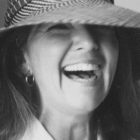Q: What positive changes have you seen in the Jewish community vis-a-vis inclusion of people with disabilities during your lifetime?
A: I have seen profound sea change in our Jewish community since my work beginning in the mid 90’s focused on the needs and aspirations of individuals with disabilities and their families. I began my work when the autism “epidemic” was front page news, and services were very limited. Very few of our UJA-Federation network agencies had programs targeted to serve individuals with disabilities or were providing support and guidance to families. Our synagogues and religious schools, with some minor exceptions were absent. This was not yet an issue on the Jewish community’s agenda.
We were blessed to have a working partnership with the J.B.& Z.B. Butler Foundation, whose mission is to help enable individuals with disabilities to live lives fulfilling their maximum potential. With their intellectual and financial support they we were able to build a vast array of services and programs with UJA-Federation agencies to help realize that vision. And over two decades working with passionately engaged agency staff and lay leaders, in consultation with PWD and their families, a broad array of programming has been organized with thousands being served.
Additionally I believe that we have seen an evolving transformation in attitudes about who are people people with disabilities (PWD). For too long their exclusion from mainstream life fed fears and great discomfort of the unknown. An important impact from the increasing inclusion of PWD in our communal institutions is the breaking down of those fears and discomforts. I believe too that the ReelAbilities Film Festival which I co-founded with the JCC Manhattan, and is now a national and international program, which was organized to bring the lives, stories and artistic expression of PWD into public view is succeeding in changing cultural and societal attitudes about just who are people with disabilities.
Q: In your opinion, what changes still need to happen, what progress still needs to be made?
A: I fear that the policies and massive proposed budget cuts emanating from the Trump administration will jeopardize so much of the progress that is being made. While philanthropic dollars have enabled great progress, it is the public funding of early intervention, special education, which guarantees each child with a disability a quality education, Medicaid dollars which pay for so many of the support services and for too few housing for those certified by OPWDD, which is now in serious danger. This is of utmost concern and requires all of us who care to fight back to help ensure that these critical, basic services and programs continue.
PWD aspire to live lives with purpose and meaning and for many that means being employed and retaining personal agency. We must work with our educational systems to ensure that youngsters are getting the appropriate transitional services that will prepare them for life once their mandated schooling is completed. For some it may mean going on to college and others to work but all need the support to be equipped for a life in which they can maximize their potential.
Q: Who is the person in your life who influenced you the most to make a difference vis-a-vis disability and inclusion?
A: I am the mother of a remarkable young man, who though intellectually gifted struggled with learning disabilities and in late adolescence was diagnosed with bi-polar disorder. I learned first hand what it was to struggle to find services and supports, the profound challenge of navigating systems, coping with the isolation and feeling like an outsider in a community, in which achievement and success are hallowed virtues. Moreover, I learned how critically important it was to find the courage and have the perseverance to advocate for my child even when it required challenging those in authority. I know that my life experience profoundly shaped and informed all of my work in this field. I made a commitment to build services that would help enable PWDs and their families to find community and connection, and the services and guidance to help them create more fulfilling and engaged lives. I was privileged to be in a position at UJA-Federation in which I was able to help realize that commitment.
I know that the entire community has grown in its humanity, and benefited immeasurably from welcoming all who wish to join in!

